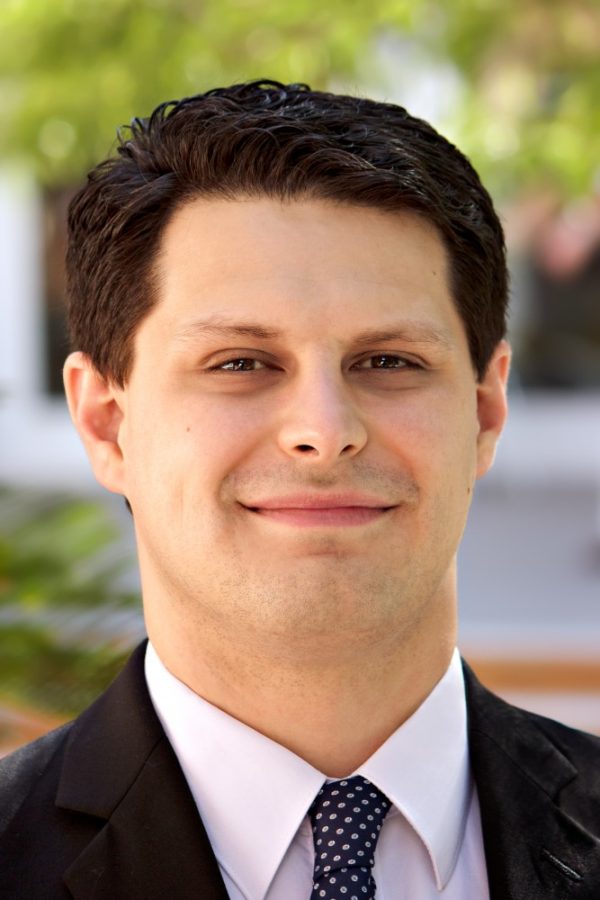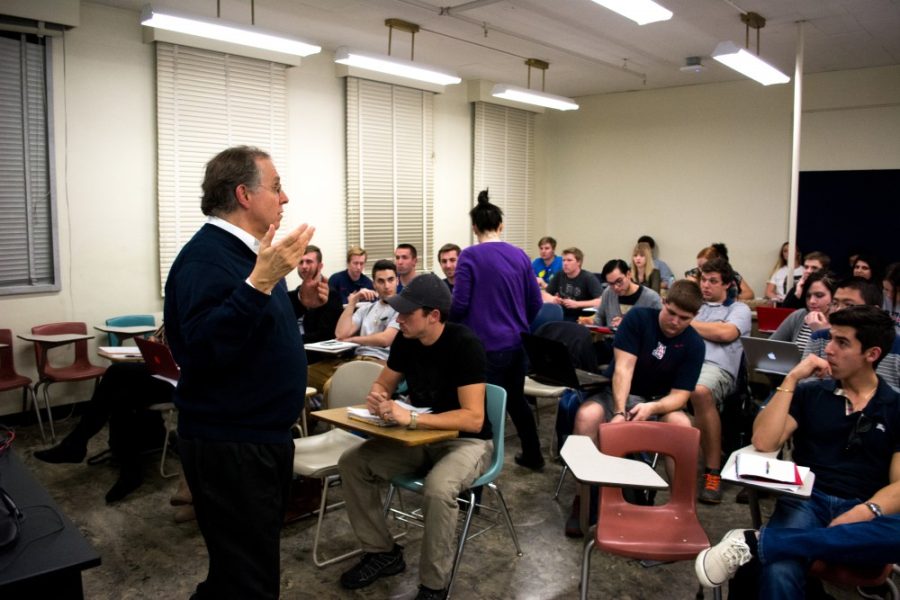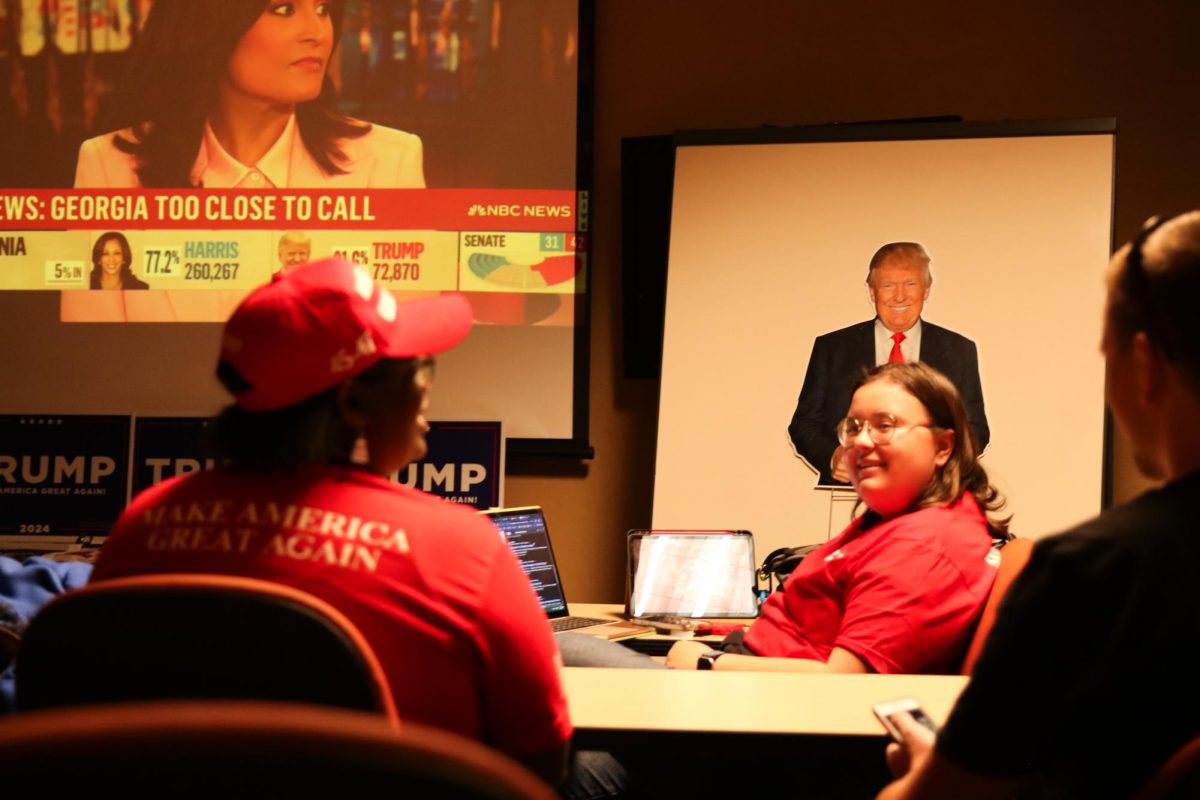Katy Murray, president of the Associated Students of the University of Arizona, has appointed three new Supreme Court justices to the ASUA Supreme Court.
Alla Goldman, Rudy Padilla, and Eddie Walneck, second-year law students at the UA, will join two other justices, Jennifer Bonham, a third-year law student, and newly appointed Chief Justice Athan Papailiou, also a third-year law student. Goldman’s, Padilla’s and Walneck’s terms are set to expire in May 2014.
The Arizona Daily Wildcat was able to speak with them during finals week about their new positions.
Why did you decide to get involved in ASUA Supreme Court?
Goldman: As an undergrad I was always involved in student government, but my government that I was involved with was the residence hall association on campus in the dorms. I really enjoyed that and really appreciated it; however, it would take off an enormous amount of time and I could never really get involved in ASUA.
When this opportunity came up, as a law student, to be involved in ASUA, kind of like in an advisory capacity, I thought that was a really great idea and a really great way to use my newfound skills to help the student body.
Padilla: Well, I was an undergraduate at the U of A and I have known about the Supreme Court for a long time. I was also involved in student organizations while I was an undergrad. While I was an undergrad I felt like the Supreme Court is a way of giving back in a way to use the legal skills that I have gained. And it’s a way to give back to an institution that I’m very proud of, that I’m very grateful for the opportunity to go to. And it really just seemed like a good fit.
Walneck: I think a lot of what had to do with [me getting involved in ASUA Supreme Court] is that I’ve been involved with student government for a long time now in college.
I kind of think of this position as a unique position, where you’ve this extra branch that is co-equal to the other two to make sure that everything is going right and everything is being followed correctly. In the past, the Supreme Court is not always used, but when it is, it’s really important. I felt with my experiences, with being involved with other student governments in the past, I felt like I could contribute and I could help out.
Overall, I feel like it’s a really good organization and I’m excited to be a part of it.
Why do you feel like you were right for the position of the Supreme Court Justice?
Goldman: They picked me, so I guess they decided that I was the correct person for the Supreme Court Justice. But the Supreme Court involves a lot of policy analysis.
Other than that, it also involves understanding not only how ASUA works but also how the U of A does things. I think that I lend a really unique background to it, having done my background to the UA and not that long ago, so I guess I bring my unique perspective.
Padilla: I never really got a chance to ask Katy Murray why she nominated me, but I suppose all of us, all of the justices, have a really long history of service to student organizations and public service as a whole. I think all of us remember us in student leadership organizations; we were all officers in one organization or another.
We all have kind of a commitment to serving the institution, and I think the TD and the Senate recognizes that and decided to give us a chance to serve on the Supreme Court.
Walneck: I think it was the experiences I had. When I was an undergrad at Harvard I was part of the student body government and then part of a smaller student body government. With that experience, I learned a lot about the different problems that come about [in student government].
I think it’s really useful to have this body that can handle disputes and the more I learned about it, I just felt like I had been a part of student government at different levels that I could help out with it. It boils down to the experience; I think that’s why I’m qualified for it and ultimately why I was chosen for it.
Then I think partially it’s my view on things; I take things pretty seriously in the sense of, I understand we need to make decisions but I also understand that the Supreme Court needs to understand its overall goal: We need to get involved in things that we are supposed to get involved in and we kind of let the other branches figure out things until they actually need us to get involved.
What is your goal in being on the Supreme Court?
Goldman: My goal is to help the chief justice carry out his platform of more transparency and being there more for the ASUA cabinet. In the past it’s just sort of been this body that’s just kind of been on the side; no one really talks to us and nobody ever cares. The only time anyone ever calls up the court is for election disputes, but one of our biggest goals this year is to be there more for the students.
If the students, before the elections come around, have a really big problem with some of the policies, they can go to the court and the court can fix it. Furthermore, I think that being there more for the ASUA cabinet in an administrative capacity means that we can proactively make some changes in the laws and policies that can anticipate conflicts and then prevent them from happening in the future.
Padilla: Really, just to add to the professionalism and the strong record that ASUA has built over the past few decades that it has existed. The Supreme Court is a body that tries to resolve disputes and tries to do so in a very professional, intelligent, and fair way. I know a lot of justices that have come before me who have been very thoughtful, very committed to that job, and I just hope to add to that legacy…and in the process hopefully we can make the Supreme Court a little more open of a body, more transparent, and make sure that everybody, all student leaders and organizations, know that we exist and will utilize us and come to us for help if they ever need it.
Walneck: I think our goal is a couple things. One is, I think, the standard thing that every Supreme Court has when they jump into a new year, which is to make sure everything goes smoothly. If there are problems that come about, then we decide fairly and everybody can agree that we are doing things the way they are supposed to be done in terms of election disputes or anything else.
I think another thing we are also trying to work on is to making it [the Supreme Court] more accessible to students in the sense that we are not only for election disputes, but also for other matters, like questions about the constitution. Overall, making it [the Supreme Court] more accessible where they [students] can see past opinions and, if there are problems, they can appeal to the Supreme Court; so, accessibility [is my goal].









